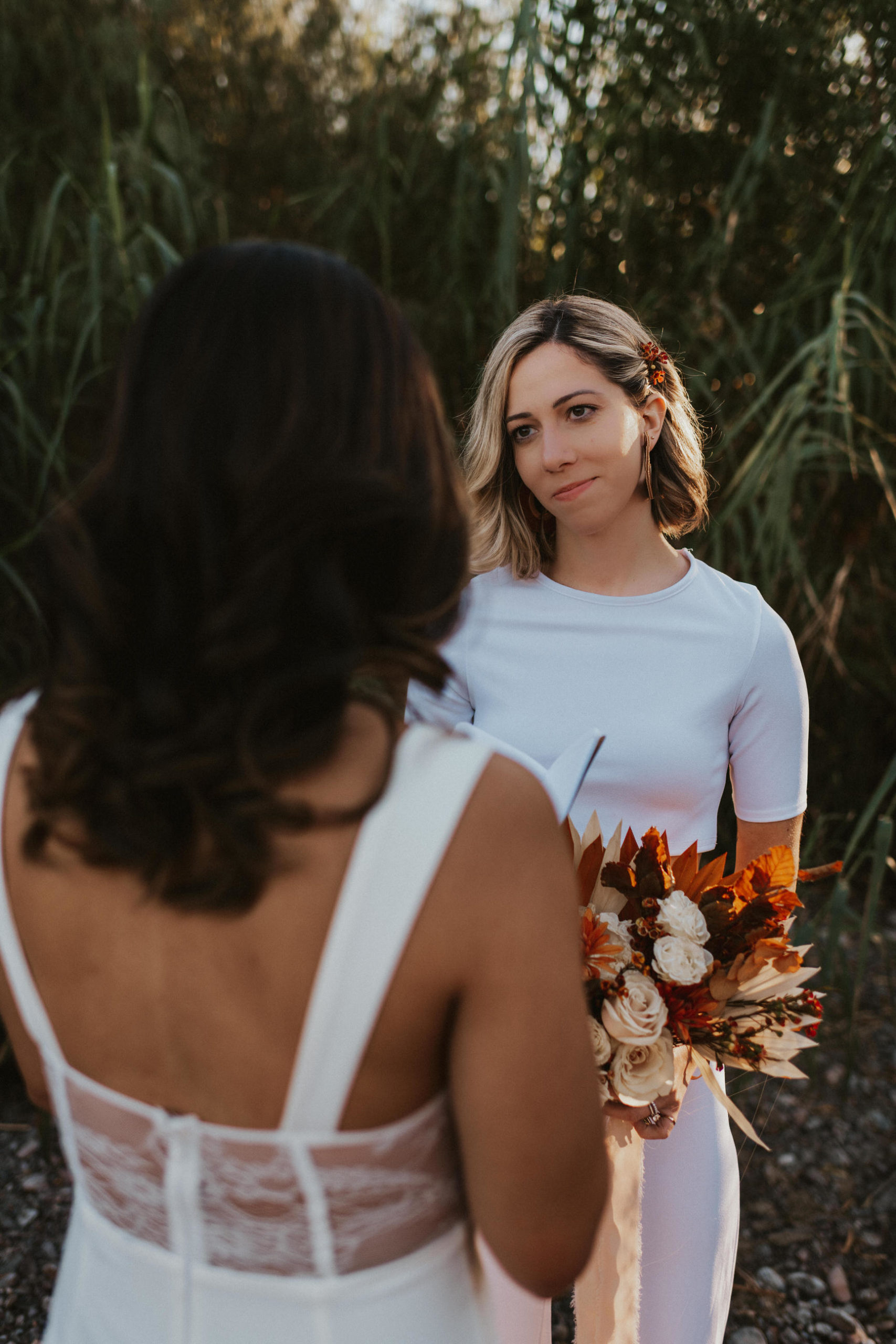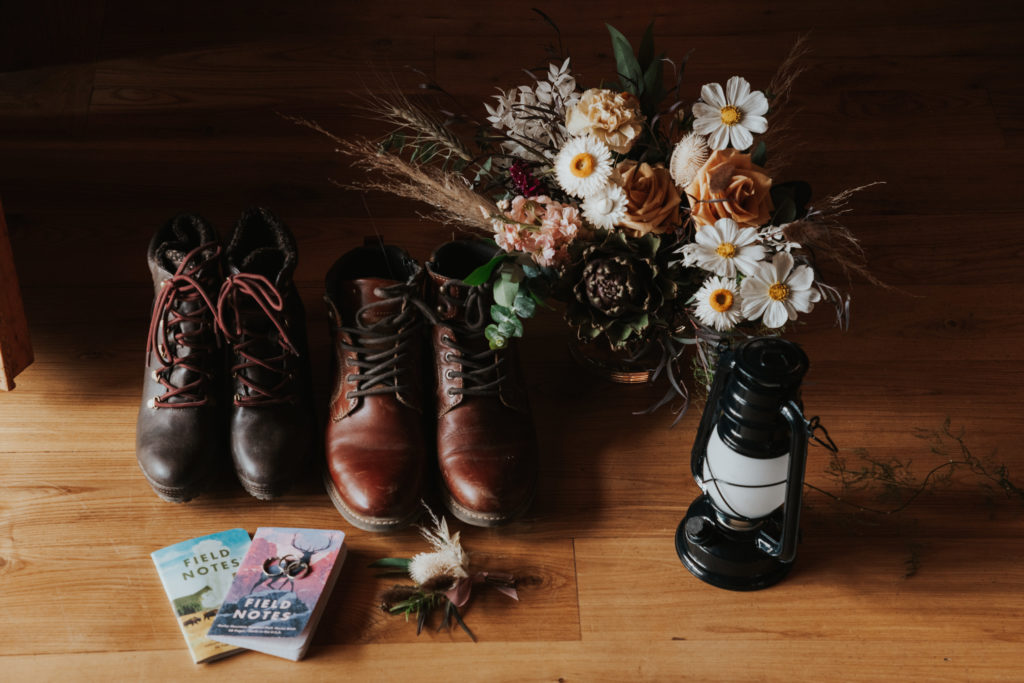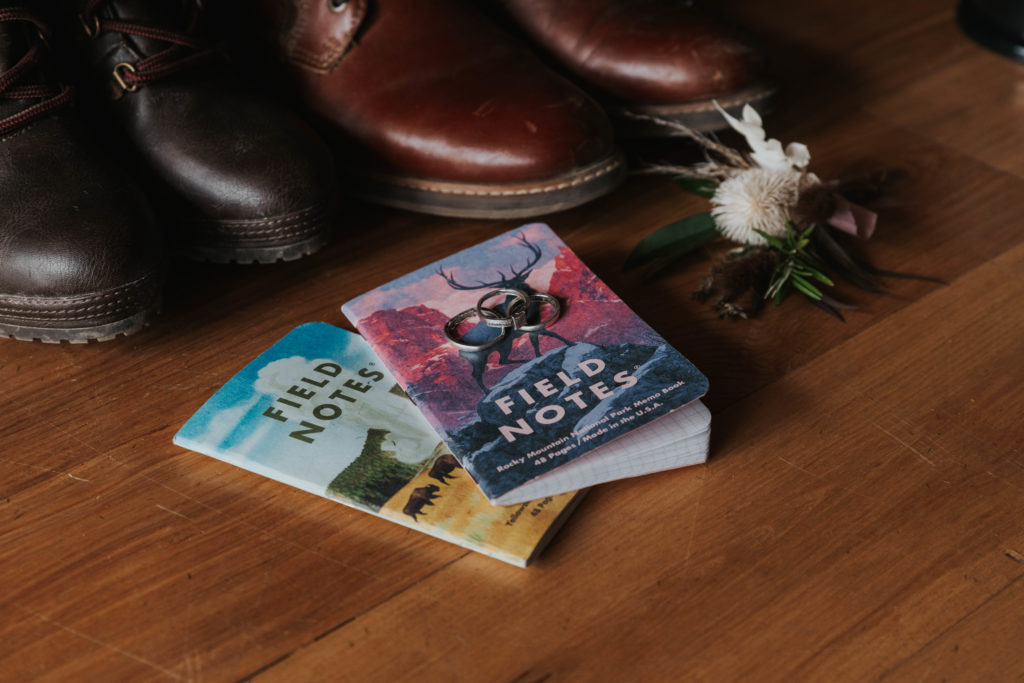
How to Write Wedding Vows – for Eloping Couples
Filed in Ceremony, elopements, Intimate weddings — June 7, 2021
There are so many reasons that couples choose to elope – including the fact that standing up in front of a hundred people and reading your vows (basically the most vulnerable thing you’ve ever written) can be pretty stressful! Eloping with just a few guests, or even just the two of you, can alleviate a lot of that stage fright – but there’s still the part where you have to sit down and write your vows.
How do you even begin to put the love you feel for your partner into words? Whether you aren’t confident in your writing abilities or just don’t know where to start, it can feel really overwhelming! This guide will give eloping couples some tips and tricks on how to write wedding vows and overcome that pesky writer’s block.
Why Write Your Own Wedding Vows?
The generic “till death do us part” vows are a wedding day classic, and there are plenty of templates and pre-written vows out there – but here’s why you should write your own wedding vows for your elopement day!
Remember Your Why
It’s easy to get caught up in planning your elopement and forget what really matters. The excitement of choosing the perfect scenic location, and even the stress of planning your day, can make couples forget that the reason they’re here is to get married!
Sitting down to write your wedding vows gives you a chance to really think about your why – why you’re marrying your partner, why you’ve decided that a traditional wedding isn’t for you, and why you’re excited to spend the rest of your life with them.
Your Words Mean More
It’s not about using the most poetic metaphors or having Shakespeare-esque love sonnets to read on your elopement day. It’s about expressing how you feel, and telling your partner how much they mean to you. Your wedding vows will mean so much more when they come from you!
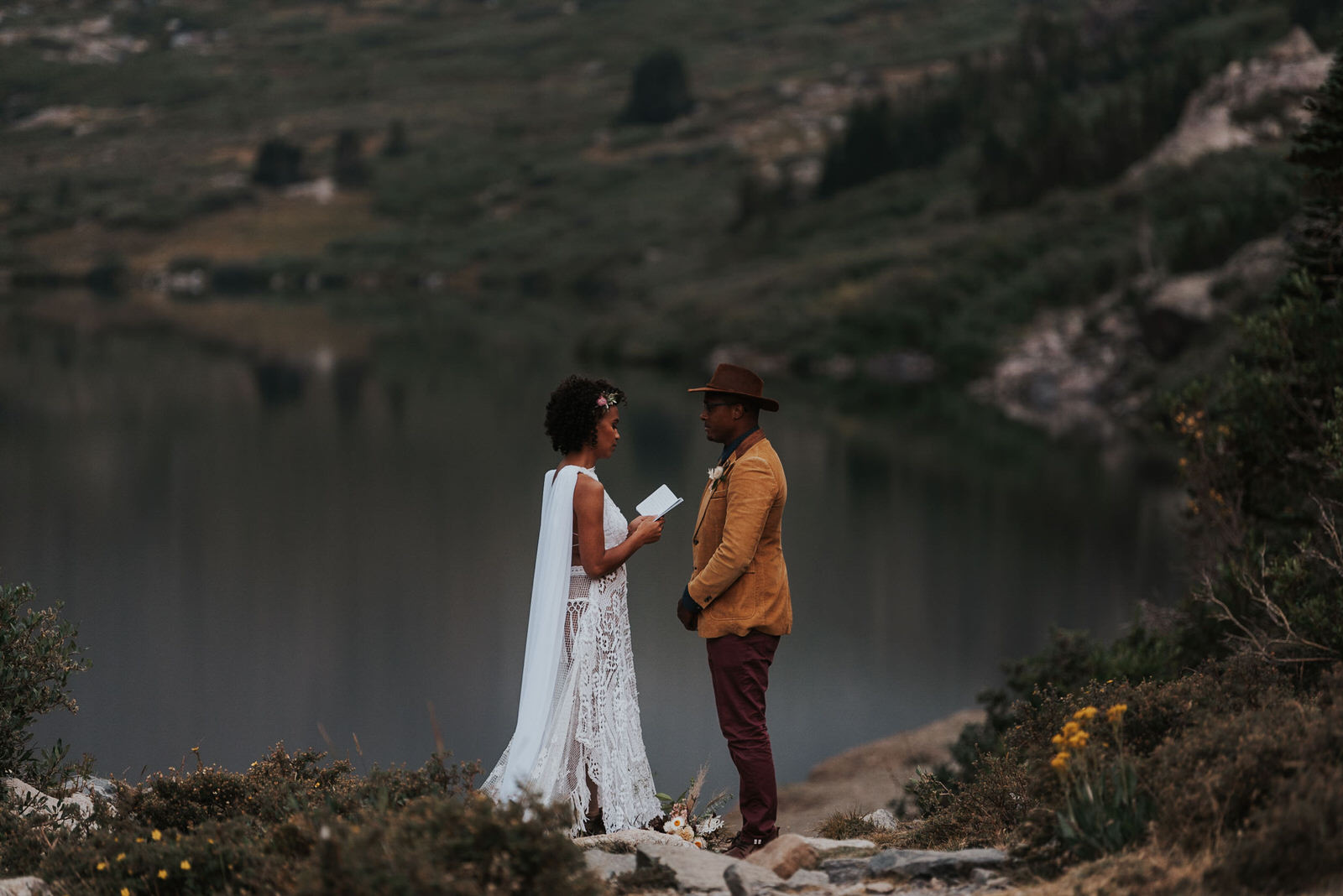
How to Write Your Wedding Vows
So you’ve decided to write your wedding vows – but here comes the hard part!
Schedule Time to Write
It’s up to you how far ahead of time you start writing your vows – some people really do work better under pressure! But I recommend starting at least a month out from your elopement day, so that you have plenty of time to write without stressing.
My first tip is to schedule time to write your vows – this means planning ahead and blocking time out of your day to sit down and work on them! Waiting for inspiration to strike or waiting for a free moment will often lead to procrastination. Plus, blocking off time just for this instead of squeezing it in when you can will help you get into the right headspace and focus on writing.
Use Pen and Paper
For the ceremony, reading your vows off of a piece of paper (or better yet, a vow book) looks a lot better than holding your phone. While you could write your vows in the Notes app and rewrite them on paper later, I recommend using pen and paper even when you’re doing your drafts or working on ideas.
Writing things by hand, as opposed to typing them out, is proven to boost creativity! Our brains usually move faster than our hands, so hand writing your thoughts forces you to slow down. It also allows you to write without getting distracted – have you ever clicked on a notification with every intention of going back to what you were doing, then ended up never comin back? I know I have!
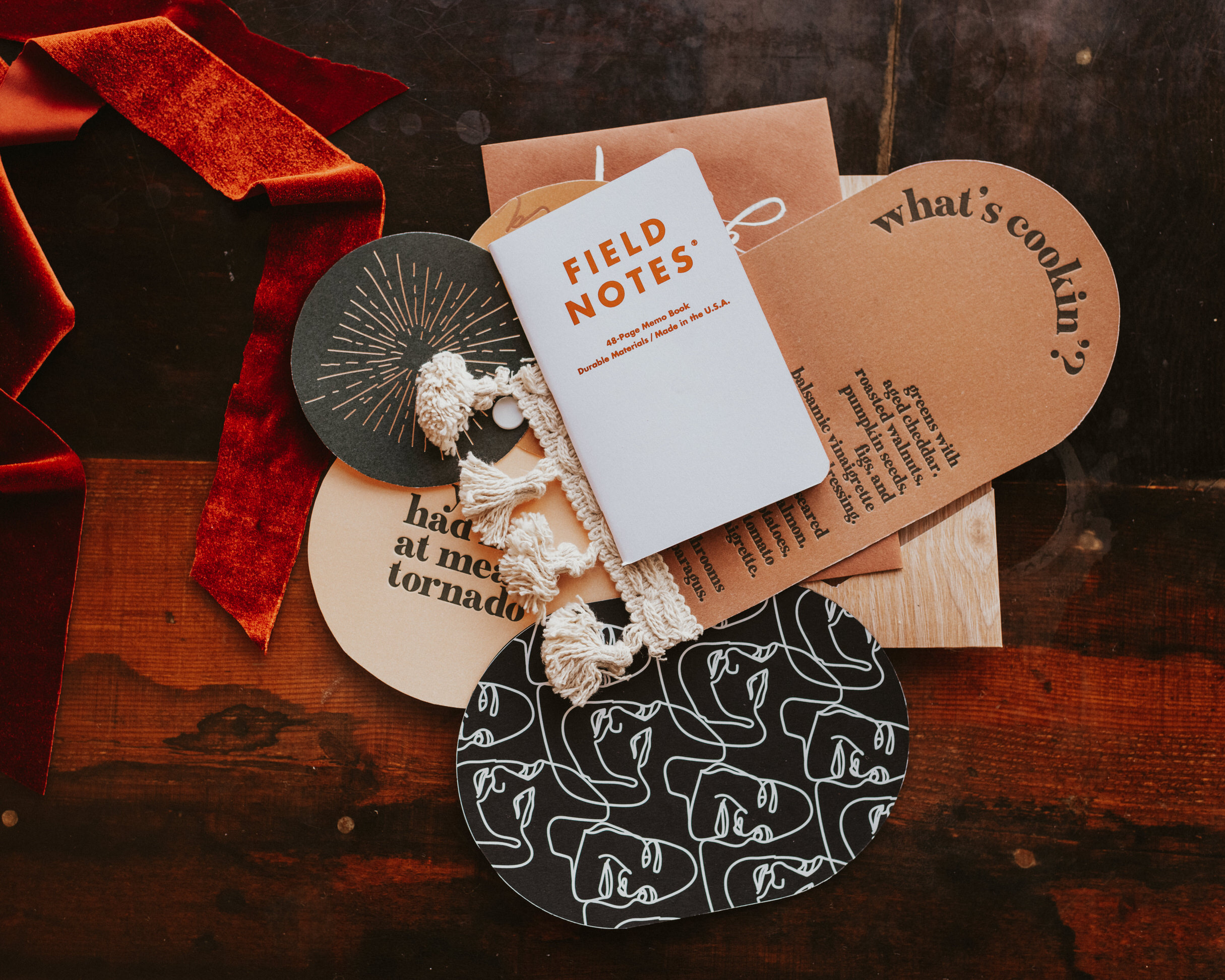
Start With a List
It’s hard to jump into your wedding vows with the perfect opener – so before you start writing full paragraphs, come up with a list. Write down anything and everything that comes to mind when you think about your partner. It can be some favorite memories, things you love about them, inside jokes, anything! This is just to get you inspired and to start thinking about things you may want to include when you write your wedding vows. As you write, it’ll get easier and easier to come up with ideas!
Once you have a list, choose your favorites and start putting them into sentence form.
Don’t Edit Yourself
Don’t edit your vows – not yet, anyway! When you’re writing your first draft of your vows, don’t think too much about which word would sound best or if you should have moved that one sentence to the beginning. Doing too much revision will stop the creativity from flowing – so for now, just write.
After you have a draft of your vows written, go back and read them over – this time, you can make changes and revisions!
Tell a Story
Your relationship has a story – and your vows should too. You can start at the beginning – start your vows by talking about how you met, or how you knew you were in love, or when you realized you wanted to spend the rest of your life with them. Talk about feelings rather than events. Your partner knows how the two of you met – but they may not know what you were thinking in that moment.
The middle of any story is when the exciting stuff happens. Your elopement day is the middle! You’re taking a huge step in your relationship, but there’s so much more ahead of you. The middle of your vows can be about this day and what it means to you – what do you promise your partner? What do you want them to know?
Your story doesn’t end here – the two of you have a whole lifetime ahead of you! So end your vows by looking forward to the future. What are you excited for? Where do you see the two of you in five, ten, fifty years?
Practice Your Vows
A lot of the time, when we’re reading, our brains can fill in information that isn’t there. When you read your vows to yourself, you may not notice that you skipped a word here or made a grammar error there. That’s why it’s important to read them out loud!
The best option is to read them to someone else – ask a friend to listen to your vows. But, if that sounds a little too scary, reading aloud to yourself is great too!
Relax!
It’s easy to get lost in your head and stress about the fact that you don’t think you’ve expressed yourself the way you wanted to. But, as long as your wedding vows come from you, and as long as you mean every word, your partner will love them. Your words don’t matter as much as the emotions behind them – so don’t put too much pressure on yourself!


